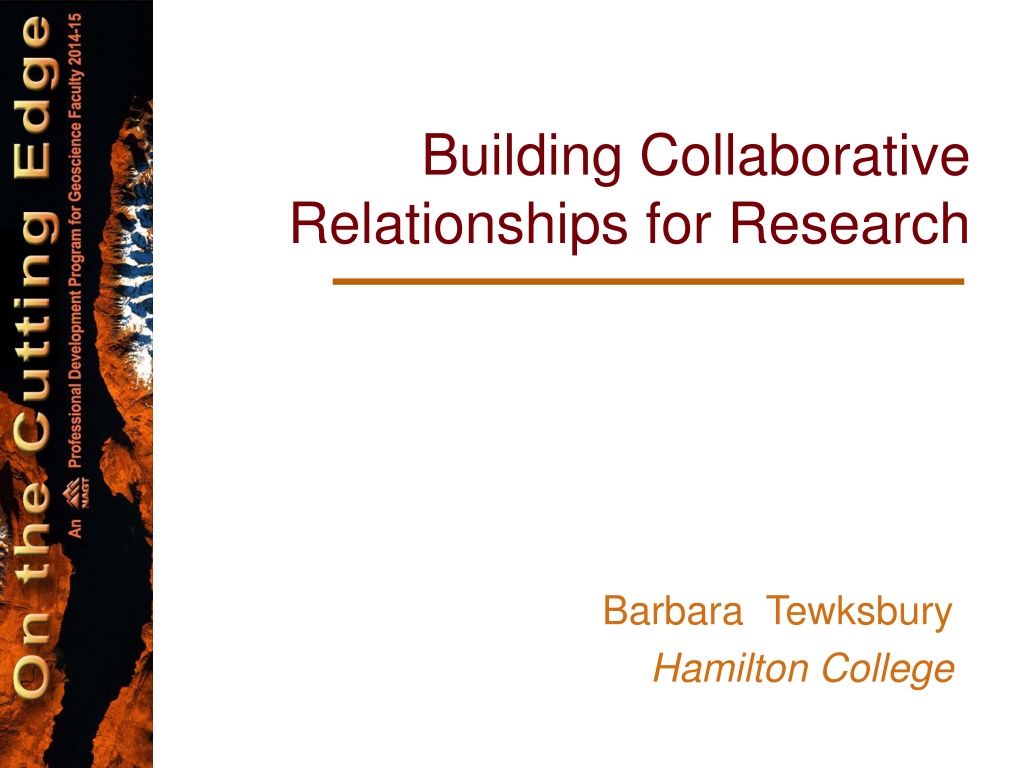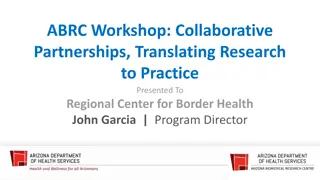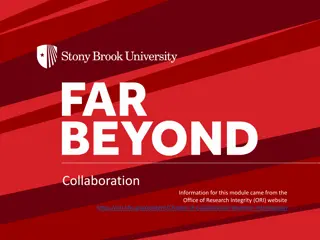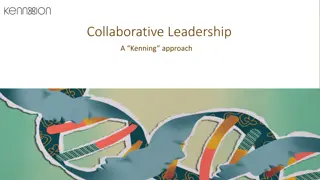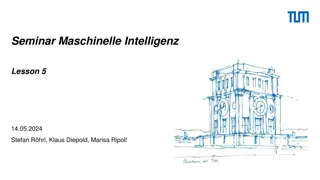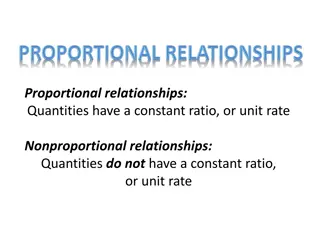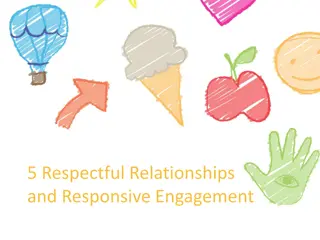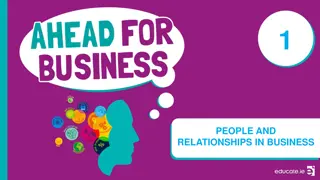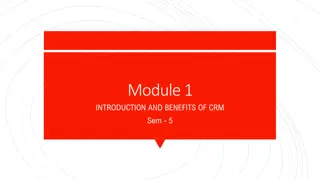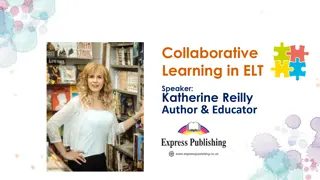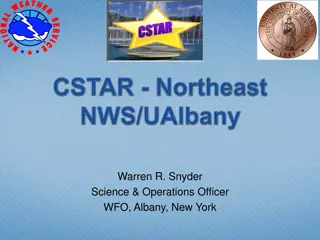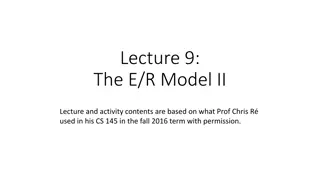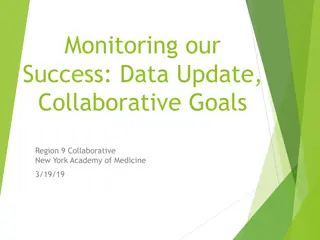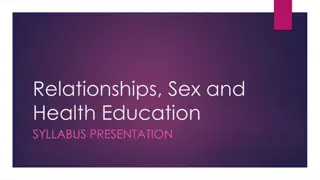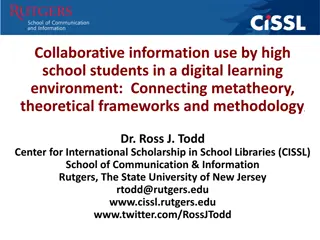Benefits of Collaborative Relationships in Research
Building collaborative relationships for research involves developing good collaborations that benefit you in various ways, such as expanding your scientific horizons, offering experiences in new field areas, and providing access to facilities and instrumentation. Collaboration also allows your students to network and engages you in a fun and accountable environment. It is essential to establish project roles, expectations, and intellectual property agreements from the beginning to avoid misunderstandings. Effective communication, time management, and professionalism are key components in developing successful collaborations.
Download Presentation

Please find below an Image/Link to download the presentation.
The content on the website is provided AS IS for your information and personal use only. It may not be sold, licensed, or shared on other websites without obtaining consent from the author. Download presentation by click this link. If you encounter any issues during the download, it is possible that the publisher has removed the file from their server.
E N D
Presentation Transcript
Building Collaborative Relationships for Research Barbara Tewksbury Hamilton College
This session Benefits of collaboration Developing good collaborations that benefit YOU Finding collaborators Research agreements written guidelines for collaboration with research students and post-docs A bit of personal planning, advice from group Any burning questions from your group
Collaboration - benefits for the project Compelling ideas are commonly interdisciplinary and require multiple expertise More eyes on a data set result in better interpretation Ideas are vetted by broader group Funding agencies believe in the value of collaboration - funding opportunities are commonly better with collaborative projects Collaboration may be essential in a foreign country
Collaboration benefits for you Expands your scientific horizons; offers experiences in new field areas Provides access to facilities, instrumentation Involves your students in other lab groups, networking for them and you Lights a fire under you it s harder to put things off when you are accountable to your colleagues IT S FUN!!!
Developing a good collaboration Avoid misunderstandings - establish project roles, expectations, intellectual property, authorship order, etc. by agreement at the start, and have it in writing Allow plenty of time to write proposals, abstracts, papers, annual reports everything takes more time working in a group Acknowledge and factor in institutional differences and needs
Developing a good collaboration Communicate! Deliver don t be the one who is always a day late and a dollar short Don t bite off more than you can chew Be professionally generous and don t be stingy with thanks and compliments Stick up for yourself, but do it in a collegial fashion If something gripes you, either let it go or address it don t let it fester
Be sure that the collaboration benefits YOU Don t fall into the trap of a flurry of research activities on a group of projects without a personal research agenda If you collaborate on several projects, be lead on one Make sure that someone can see your own research agenda in the work that you do both on your own and as a collaborator
Finding collaborators People you already know (e.g., your post-doc group or grad school group) Advantages: you know how to work with them, what people s good and bad points are; may provide project continuity Disadvantages: no new perspectives, you may feel locked into a role Advice: don t assume or let others assume be explicit about roles and expectations
Finding collaborators New collaborators Advantages: fresh ideas, broader network, may be easier to come in as an equal Disadvantages: its more work to find people, and you don t know what they will be like to work with Do your homework and ask around what is so-and-so like to work with? What do you like best? What do you like least? Don t assume anything clarify roles and expectations in writing.
Guidelines for collaborations with students Read the sample: What hadn t you thought of before? What aspects did you like? What aspects didn t you like? Other examples: http://serc.carleton.edu/NAGTWorks hops/earlycareer/research/students. html#guidelines
Task What can you be doing over the next year to set yourself up for future collaborations? What do you want advice on? What is your group s burning question?
